The rise of Hillary and the death of politics
Clinton’s gender-obsessed campaign confirms the end of political life.
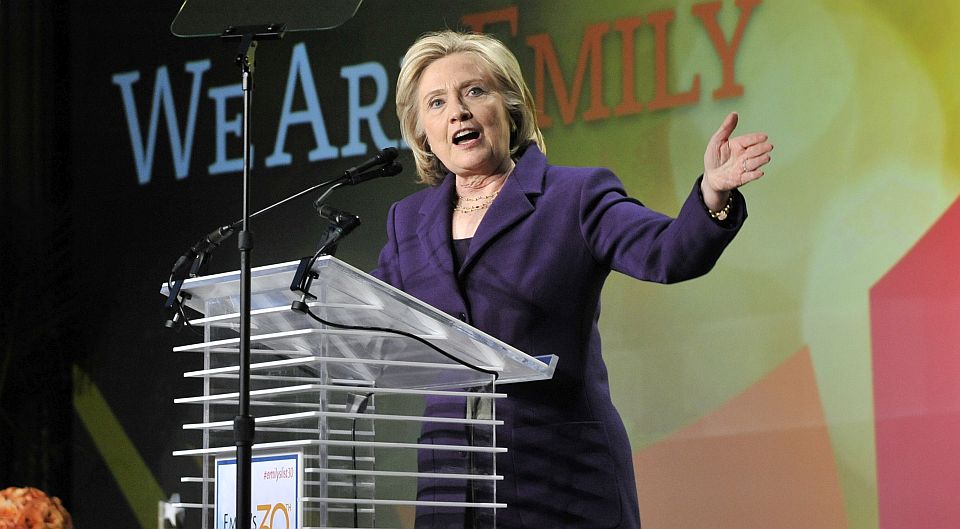
Want unlimited, ad-free access? Become a spiked supporter.
If you want to see how small politics has become in the 21st century, just look at Hillary Clinton’s chucking of her hat into the 2016 US presidential race. Or better still, look at the response to her unveiling of her presidential ambitions, the chorus of cheers and whoops that greeted her decision to make hers a gender-focused, grandmotherly, womanish campaign, in which, as one excited observer puts it, sex – as in biology, not raunch – will form a ‘core plank’ of Hillary’s stab for the White House. What this speaks to is the suffocating extent to which the politics of identity, the accident of who we are, the lottery of our natural characteristics, is now paramount in the political sphere, having violently elbowed aside the old politics of ideas, and substance, and conviction.
Hillary’s presidential launch confirms that, in the space of just seven years, identity has become pretty much the only game in the town of politics. For as many commentators are pointing out, even as recently as 2008, when she stood against Barack Obama in the clash to become the Democratic presidential nominee, Hillary wasn’t all about gender. There was something else. ‘Ms Clinton played down the gender role the first time she ran for the top job’, as one American news report puts it: ‘But this time it’s expected to be a core plank of her campaign.’ Back in 2008, Clinton did ‘her best to make gender a non-issue; this time it’s expected to be the opposite’. The Guardian, long-time supporter of the Clintons, especially when Bill bombed Yugoslavia in 1999 (liberals loved war back then), gushes about the fact that Hillary is playing the gender card. Where in 2008 she ‘struggled against the idea’ that she was striking a blow for her gender – that is, she foolishly though her views counted for more than her vagina – this time she will put ‘gender at the forefront of her presidential race’ to become ‘grandmother-in-chief’, says the Guardian approvingly. We will never know if the supposedly feministic Guardian’s leader-writers stopped to think that it might be a tad patronising to define a woman who has been involved in law and politics for 40 years by the fact that she’s a granny.
But of course, that’s the card Hillary herself is playing. She uses the Twitter hashtag #GrandmothersKnowBest (one wonders if that will be printed on the side of the missiles she fires at errant states that dare to piss off Madam President). And her launch video was all about gender. Primarily featuring women – and of course containing a nod to gay marriage, for it is political suicide for any public official to fail to genuflect cravenly before this most orthodox of modern orthodoxies – her video is an identity-fest. It says nothing of policy – bar supporting families and being nice to working people – and instead tick-boxes all identities, especially gender ones. Young woman? Check. Ethnic woman? Check. Old woman? Check. Mexicans? Check. Gays? Check, check, check. Left-leaning observers are falling over themselves to pat Granny Hillary on the back for what one describes as her ‘shift in tone from 2008 to 2016’, where she will now be ‘running as a woman’. In 2008, she ran as a politician; in 2016, she will run as a woman. How, precisely, is this ‘shift in tone’ from defining a female candidate by her politics to defining her by her gender a positive thing?
Yet that’s how it is being treated. Chelsea Clinton says her mother’s womanly campaign is ‘absolutely important for… symbolic reasons’. Politics is about symbols, now? Not substance? In response to those who say Hillary is ‘playing the gender card’ just to get to the White House, one American feminist writer says: ‘Good.’ Apparently Clinton should ‘tout’ her ‘gender-specific’ qualities. Feminists are retrospectively criticising Clinton for failing to run as a woman in 2007/08. Back then, she famously said to an audience in Iowa: ‘I’m not running as a woman.’ Thank God, say feminist observers, that she has finally jettisoned that stupid, genderless, ideas-before-biology outlook of seven years ago in favour of wanting to mother, or grandmother, the nation, and opting to upfront her gender, to flaunt it, advertise it, and in the process elevate symbolics over substance.
This is seriously dispiriting stuff. What these alleged progressives are really celebrating is the great neutering of Hillary Clinton; the taming of her; her obedient abandonment of the apparently outdated idea that a woman should be judged on what she thinks and says, and her corresponding embrace of the new, but actually spectacularly old, idea that female politicians should be seen first and foremost as females. I’ve never been a massive fan of Clinton – because of her policies, not her sex, which makes no difference to me – but I admired her earlier insistence that she was a politician before she was a woman, that she was presidential material by dint of her vision and beliefs rather than her biology, her pregnancies, her status as a grandmother. When the Guardian says Hillary was ‘struggling against’ the idea of gender back in the mid-2000s, it is right – she was struggling against the attempt to define her by her private existence rather than by her public record and pronouncements. But she was fighting a losing battle, and now she has well and truly been slain – by the awesomely powerful, dominant politics of identity. Hillary the politician is dead; Hillary the grandmother is born.
We should all be worried about this, Hillary fans or not, because it demonstrates the terrifying grip that the politics of identity now exercises – not only on the academy, which has for years been obsessed with gender and race and with dissing the Enlightenment’s alleged folly of universalism, but on mainstream politics, on Washington itself. Of course the politics of identity existed back in 2007/08, and in fact has been gaining in strength since the 1980s, when the left ditched its one-time belief in the fundamental equity of humankind in favour of embracing the deadening and divisive politics of multiculturalism. Indeed, in 2008 Obama and his supporters played the identity card pretty well. But now, identity politics is all there is. As the old ideologies have corroded further, as stirring political ideas have become notable by their absence, so identity, who you are, has taken ever-greater precedence. In a terrible reversion to life before Enlightenment, before the dawn of democracy, before the Suffragettes and the civil-rights movement, we are now once again boxed according to biology, judged by gender or race, encouraged to conceive of ourselves, not as active shapers of abstract political ideas or universal campaigns, but as the passive, accidental creation of genes, environment or circumstance.
Judging from Hillary’s launch, and the response, the road to the 2016 presidency is going to be a sad and ugly one. It could well strengthen the deathly biologism and separatism of the modern post-political sphere. Where the politics of conviction treated us as political subjects, shaping the world through argument and analysis and action, the politics of identity makes us biological objects, shaped by our natural characteristics or our skin colour or by our private choices to have kids, to have grandkids, to be gay, to be married, or whatever. Hillary may have thrown in the towel on that thing she was ‘struggling against’ in 2008 – the idea that what you are is more important than what you believe – but the rest of us shouldn’t. We are more than what’s in our underpants. If you’re voting for Hillary because she has a vagina, then you’re no better than those old sexists who for centuries likewise overlooked the fact that women also have brains and ideas.
Brendan O’Neill is the editor of spiked.
Picture by: Getty Images.
You’ve hit your monthly free article limit.
Support spiked and get unlimited access.
Support spiked and get unlimited access
spiked is funded by readers like you. Only 0.1% of regular readers currently support us. If just 1% did, we could grow our team and step up the fight for free speech and democracy.
Become a spiked supporter and enjoy unlimited, ad-free access, bonus content and exclusive events – while helping to keep independent journalism alive.
Monthly support makes the biggest difference. Thank you.


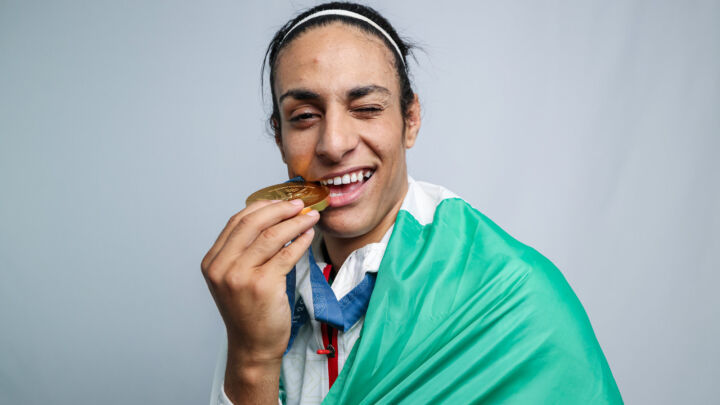
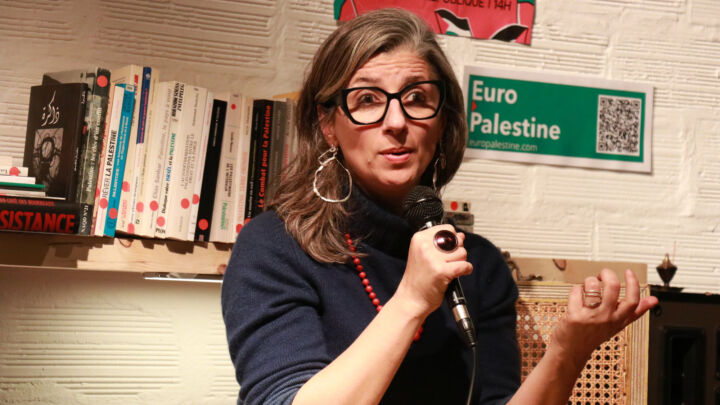
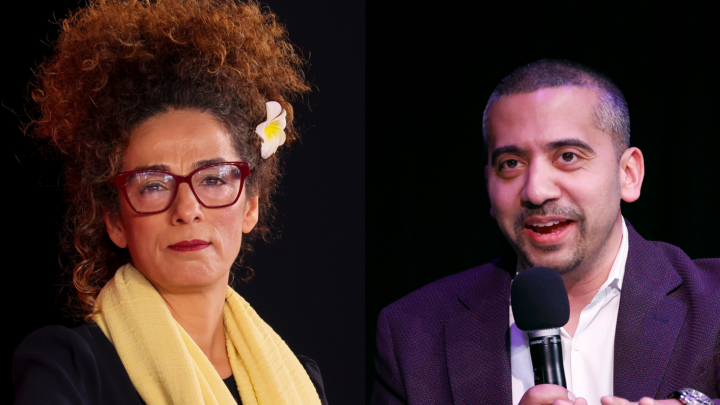

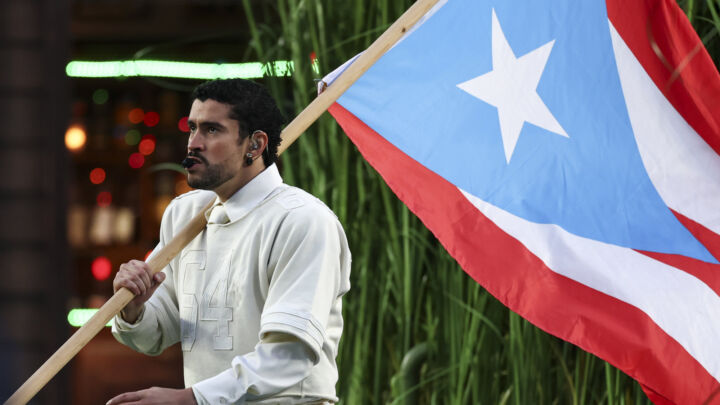



Comments
Want to join the conversation?
Only spiked supporters and patrons, who donate regularly to us, can comment on our articles.